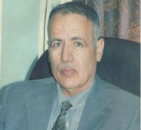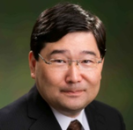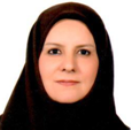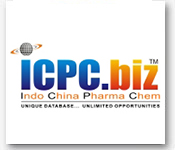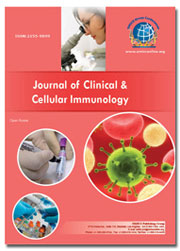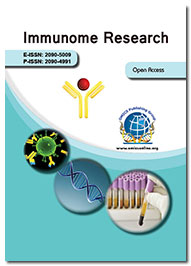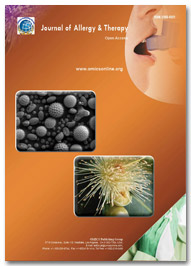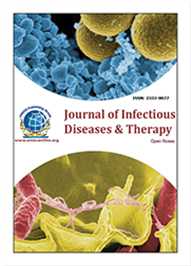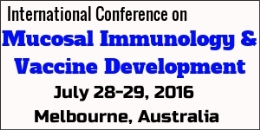Theme: Innovations and Novel Approaches in Mucosal Immunology
Mucosal Immunology 2016
ConferenceSeries Ltd invites all the participants from all over the world to attend International Conference on Mucosal Immunology & Vaccine Development July 28-29, 2016 Melbourne, Australia. Which includes prompt keynote presentations, Oral talks, Poster presentations and Exhibitions.
Track 1: Mucositis
Mucositis occurs when cancer treatments break down rapidly and divided epithelial cells lining into the gastro-intestinal tract (which goes from the mouth to the anus), split-up the mucosal tissue exposed to ulceration and infection. Mucosal tissue or mucous membrane, lines all body passages that interconnect with the air, such as cells and associated glands which secrete mucus, and respiratory and alimentary tracts. Oral mucositis is probably the most common, debilitating complication of cancer treatments, mainly chemotherapy and radiation. The mucous membrane is a soft layer of tissue that insert into the digestive system from the mouth to anus. Mucositis is again divided into two main types, including, Gastrointestinal mucositis which occurs inside the digestive system and repeatedly causes diarrhoea. Oral mucositis which can cause mouth ulcers and pain or difficulty swallowing. Its difficulty swallowing or talking, feeling of dryness, mild burning, or pain when eating food. Whitish patches in the mouth or on the tongue. That will increased mucus or thicker saliva in the mouth.
Related conferences:
5th European Immunology Conference, July 21-23, 2016 Berlin, Germany; International Conference on Allergy, September 14-15, 2016 Amsterdam, Netherlands; 2nd International Congress on Neuroimmunology & Therapeutics, December 01-03, 2016 Atlanta, Georgia, USA; 2nd International Conference on Innate Immunity, July 21-22, 2016, Germany; 6th International Conference and Exhibition on Immunology, October 24-26, 2016 Chicago, Illinois, USA; International Conference on Tumor Immunology and Immunotherapy, July 28-30, 2016, Melbourne, Australia; Society for Mucosal Immunology Conference, July 27-30, 2016, Toronto, Canada; The American association of Immunologist, AAI annual meetings, May 13-17, 2016, Seattle, WA; 2nd International Conference and Exhibition on Antibodies and Therapeutics , July 11-12, 2016 Philadelphia, Pennsylvania, USA; Conference on Vaccine Development, July 28-29, 2016, Melbourne, Australia; Immunology Meetings, October 24-26, 2016 Chicago, Illinois, USA; JAK-STAT Signaling in Immunity and Disease, January 10–14, 2016; Australasian Society for Immunology, August 21-26, 2016, Melbourne, Australia; British Society for Immunology Congress, December 6 - 9, 2016, Liverpool, UK.
Track 2: Mucosal Diseases
Diseases of the mucous membranes are frequently more difficult to diagnose than skin diseases. This is somewhat due to alteration of the primary lesion either by the continuous mouth moisture or by different elements in the mouth or those reaching in the mouth from outside, either through food, mouthwashes or others. A mucous cyst, also known as a mucocoele, is a fluid-filled swelling that arises on the lip or the mouth. Most cysts are on the lower lip but it can occur anywhere inside the oral cavity. Mucosal inflammation typically refers to inflammation or irritation of the mucus membranes. These are areas of the body which can produce mucus in an effort to filter out bacteria, viruses, and other intruders. This includes the nasal cavities, mouth, throat, eyes, vagina, lungs, and intestines. Inflammation can occur if bacteria or viruses cause an infection, if the area is cross by allergens or other foreign bodies, or due to fungal infection. The cyst grows when mucus from the mouth’s salivary glands becomes plugged. Some of the Skin diseases which associated with mucous membrane manifestations such as Pemphigus vulgaris, Lichen planus, Lupus erythematosus, Mucosal candidiasis, Viral diseases such as Koplik‘s spots of measles and herpes simplex, Syphilis.
Related Conferences
International Conference on Cancer Immunology and Immunotherapy, July 28-30, 2016 Melbourne, Australia; Immunology Conferences October 13-14, 2016 Manchester, UK, Asthma Events September 14-15, 2016 Amsterdam, Netherlands, Clinical Immunology conferences September, 14-15, 2016 Amsterdam, Netherlands; 2nd International Conference and Exhibition on Antibodies and Therapeutics, July 11-12, 2016 Philadelphia, Pennsylvania, USA; Autoimmunity Conferences October 13-14, 2016 Manchester, UK; 2nd International Congress on Neuroimmunology & Therapeutics, December 01-03, 2016 Atlanta, Georgia, USA; Conference on Vaccine Development, July 28-29, 2016, Melbourne, Australia; International Conference on Tumor Immunology and Immunotherapy, July 28-30, 2016 Melbourne, Australia; Immunology Congress, July 21-23, 2016 Berlin, Germany; Society for Mucosal Immunology Conference, July 27-30, 2016, Toronto, Canada; Australasian Society for Immunology, August 21-26, 2016, Melbourne, Australia; International Society for Vaccines and ISV Congress, October 2-4, 2016, Boston, USA; 10th Vaccine Congress, September 4-7, 2016, Amsterdam, The Netherlands.
Track 3: Vaccines Against Infectious Diseases and Cancers
Vaccines against infectious diseases represent a therapeutic vaccine against chronic infectious diseases aim at eliciting broad humoral and cellular immune responses against multiple target antigens. The development of these vaccines will help to establish substitute markers of protection in humans and thus will boost the subsequent development of capable prophylactic vaccines. A grouping of synthetic small-molecule drugs and immunotherapeutics is likely to represent a powerful means of controlling chronic infections in the future. There are a number of scientific challenges which require multidisciplinary teams to solve problems in developing new immunogens. This has challenged our existing knowledge about protein structure and conformation, microbial pathogenicity and the immune system. Cancer cells are generally ignored by the immune system. This is because for the most of the part are more closely resemble cells that belong in the body than pathogens, such as bacterial cells or viruses. The goal of cancer vaccines is to provoke the immune system to identify cancer cells as foreign and attack them.
Related Conferences
2nd International Conference and Exhibition on Antibodies and Therapeutics, July 11-12, 2016 Philadelphia, Pennsylvania, USA; International Conference on Tumor Immunology and Immunotherapy, July 28-30, 2016 Melbourne, Australia; Society for Mucosal Immunology Conference, July 27-30, 2016, Toronto, Canada; The American association of Immunologist, AAI annual meetings, May 13-17, 2016, Seattle, WA; Conference on Vaccine Development, July 28-29, 2016, Melbourne, Australia; Immunology Events, October 24-26, 2016 Chicago, Illinois, USA; JAK-STAT Signaling in Immunity and Disease, January 10–14, 2016; International Conference on Cancer Immunology and Immunotherapy, July 28-30, 2016 Melbourne, Australia; Immunology Conferences October 13-14, 2016 Manchester, UK; Asthma Events September 14-15, 2016 Amsterdam, Netherlands; 5th European Immunology Conference, July 21-23, 2016 Berlin, Germany; 2nd International Congress on Neuroimmunology & Therapeutics, December 01-03, 2016 Atlanta, Georgia, USA; Australasian Society for Immunology, August 21-26, 2016, Melbourne, Australia; British Society for Immunology Congress, December 6 - 9, 2016, Liverpool, UK.
Track 4: Allergic Asthma Treatment and Prevention
Asthma is a chronic condition in which the airways that carry air to the lungs are inflamed and narrowed. It’s caused by a combination of both genetic and environmental factors. Many genes have been related to asthma. Inflamed airways are very sensitive, and they tend to react to things in the environment called triggers, such as substances that are inhaled. When the airways react, they swell and narrow even more, and also produce extra mucus, all of which make it harder for air to flow to the lungs. The muscles around the airways also tighten, which further restricts air flow. There are also many environmental factors connected to asthma in children. With so many variables, preventing the development of asthma can be challenging, if not impossible. Immunotherapy in the form of allergy shots, works to enhance or suppress the immune system. The goal of immunotherapy is to reduce sensitivity to allergens over time.
Related Conferences
Asthma Events September 14-15, 2016 Amsterdam, Netherlands; International Conference on Autoimmunity, October 13-14, 2016 Manchester, UK; International Conference on Cancer Immunology and Immunotherapy, July 28-30, 2016 Melbourne, Australia; Immunology Conferences October 13-14, 2016 Manchester, UK; International Society for Vaccines and ISV Congress, October 2-4, 2016, Boston, USA; 2nd International Conference and Exhibition on Antibodies and Therapeuticss, July 11-12, 2016 Philadelphia, Pennsylvania, USA; 5th European Immunology Conference, July 21-23, 2016 Berlin, Germany; Conference on Vaccine Development, July 28-29, 2016, Melbourne, Australia; International Congress on Neuroimmunology & Therapeutics, December 01-03, 2016 Atlanta, Georgia, USA; International Conference on Tumor Immunology and Immunotherapy, July 28-30, 2016 Melbourne, Australia; Society for Mucosal Immunology Conference, July 27-30, 2016, Toronto, Canada; British Society for Immunology Congress, December 6 - 9, 2016, Liverpool, UK; Immunology Meetings, October 24-26, 2016 Chicago, Illinois, USA; 10th Vaccine Congress, September 4-7, 2016, Amsterdam, The Netherlands.
Track 5: Veterinary Vaccines
The main goals of veterinary vaccines are to progress the health and welfare of companion animals, increase production of livestock in an economical manner, and prevent animal to human transmission from both domestic animals and wildlife. Animals, just like humans, suffer from a range of infectious diseases. As veterinary medicine has advanced, prevention of disease has become a priority. One of the best means of prevention is by creating immunity in the animal. This is usually achieved by vaccination. Vaccination also reduces the amount of pharmaceutical treatments (such as antibiotics) used to control conventional diseases and, in many instances, has prevented long term suffering and death.
Related conferences:
2nd International Conference and Exhibition on Antibodies and Therapeutics, July 11-12, 2016 Philadelphia, Pennsylvania, USA; International Conference on Tumor Immunology and Immunotherapy, July 28-30, 2016 Melbourne, Australia; Society for Mucosal Immunology Conference, July 27-30, 2016, Toronto, Canada; The American association of Immunologist, AAI annual meetings, May 13-17, 2016, Seattle, WA; JAK-STAT Signaling in Immunity and Disease, January 10–14, 2016; International Conference on Conference on Cancer Immunology and Immunotherapy, July 28-30, 2016 Melbourne, Australia; Immunology Conferences October 13-14, 2016 Manchester, UK; Asthma Events September 14-15, 2016 Amsterdam, Netherlands; 5th European Immunology Conference, July 21-23, 2016 Berlin, Germany; Conference on Vaccine Development, July 28-29, 2016, Melbourne, Australia; Immunology Congress, July 21-23, 2016 Berlin, Germany; 2nd International Congress on Neuroimmunology & Therapeutics, December 01-03, 2016 Atlanta, Georgia, USA; Australasian Society for Immunology, August 21-26, 2016, Melbourne, Australia; British Society for Immunology Congress, December 6 - 9, 2016, Liverpool, UK.
Track 6: Vaccine Delivery Systems
Mucosal surfaces are a major gateway for many human pathogens that are the cause of infectious diseases worldwide. Vaccines capable of eliciting mucosal immune responses can fortify defenses at mucosal front lines and protect against infection. However, most permitted vaccines are administered parenterally and fail to produce protective mucosal immunity. Immunization by mucosal routes may be more effective at inducing protective immunity against mucosal pathogens at their sites of entry. Recent advances in mucosal immunity and identification of correlates of protective immunity against specific mucosal pathogens have renewed interest in the development of mucosal vaccines.
Global revenue for vaccine technologies was nearly $31.8 billion in 2011. This market is expected to increase from $33.6 billion in 2012 to $43.4 billion in 2017 at a compound annual growth rate (CAGR) of 5.3%.
Related conferences:
5th European Immunology Conference, July 21-23, 2016 Berlin, Germany; International Conference on Allergy, September 14-15, 2016 Amsterdam, Netherlands; 2nd International Congress on Congress on Neuroimmunology & Therapeutics, December 01-03, 2016 Atlanta, Georgia, USA; 2nd International Conference on Innate Immunity, July 21-22, 2016, Germany; 6th International Conference and Exhibition on Immunology, October 24-26, 2016 Chicago, Illinois, USA; International Conference on Tumor Immunology and Immunotherapy, July 28-30, 2016, Melbourne, Australia; Society for Mucosal Immunology Conference, July 27-30, 2016, Toronto, Canada; Conference on Vaccine Development, July 28-29, 2016, Melbourne, Australia; The American association of Immunologist, AAI annual meetings, May 13-17, 2016, Seattle, WA; 2nd International Conference and Exhibition on Antibodies and Therapeutics, July 11-12, 2016 Philadelphia, Pennsylvania, USA; Immunology Meetings, October 24-26, 2016 Chicago, Illinois, USA; JAK-STAT Signaling in Immunity and Disease, January 10–14, 2016; Australasian Society for Immunology, August 21-26, 2016, Melbourne, Australia; British Society for Immunology Congress, December 6 - 9, 2016, Liverpool, UK.
Track 7: Sinus Mucosal
The sinuses are hollow, bone and mucus lined spaces that lie just to the side of the nose and extend up to the bottom of our skull. There are several different sinuses in the human head and include two large paired maxillary (sometimes referred to as cheek sinuses), two frontal and sphenoid sinuses and multiple ethmoid sinuses. Sinus disease occurs in several forms, but all are related to a combination of infection and the inability of air to get into sinus cavities from the nose. Similar to the ear and mastoid, the sinuses are air-filled spaces surrounded by thin bone and lined by mucosa. When the air is absorbed by the mucosa faster than air can get through the sinus openings (ostia) into the sinuses, a relative vacuum develops and fluid is pulled from the lining tissues of the sinuses into the sinus cavities. This fluid easily becomes infected. Allergy causes mucous glands to release thicker fluids (mucous), which can also become infected and which are harder to clean from the sinuses. Sinus disease is not just one entity but many. Overall infectious or inflammatory sinus disease can be broken up into acute (quick onset) or chronic (over a long period of time). Acute sinusitis is the most common form of sinusitis and is typically treated with a combination of antibiotics and agents to decrease inflammation in the nose.
Related Conferences:
International Conference on Cancer Immunology and Immunotherapy, July 28-30, 2016 Melbourne, Australia; Immunology Conferences October 13-14, 2016 Manchester, UK, Asthma Events September 14-15, 2016 Amsterdam, Netherlands, Clinical Immunology conferences September, 14-15, 2016 Amsterdam, Netherlands; 2nd International Conference and Exhibition on Antibodies and Therapeutics, July 11-12, 2016 Philadelphia, Pennsylvania, USA; Autoimmunity Conferences October 13-14, 2016 Manchester, UK; 2nd International Congress on Neuroimmunology & Therapeutics, December 01-03, 2016 Atlanta, Georgia, USA; International Conference on Tumor Immunology and Immunotherapy, July 28-30, 2016 Melbourne, Australia; Conference on Vaccine Development, July 28-29, 2016, Melbourne, Australia; Immunology Events, October 24-26, 2016 Chicago, Illinois, USA; Society for Mucosal Immunology Conference, July 27-30, 2016, Toronto, Canada; Australasian Society for Immunology, August 21-26, 2016, Melbourne, Australia; International Society for Vaccines and ISV Congress, October 2-4, 2016, Boston, USA; 10th Vaccine Congress, September 4-7, 2016, Amsterdam, The Netherlands.
Track 8: Child Vaccination & Immunization / Pediatric Vaccines
Children vaccines that ought to be administered to humans during childhood stage of life can be termed as childhood vaccines. These vaccines are primarily responsible for the induction of immune system and development of immunogenic response within the child. Immunisation protects people against harmful infections before they come into contact with them. Technically ‘vaccination’ is the term used forgiving a vaccine that is actually getting the injection or swallowing the drops. Immunisation is the term used for the process of both getting the vaccine and becoming immune to the disease as a result of the vaccine.
Related conferences
2nd International Conference and Exhibition on Antibodies and Therapeutics, July 11-12, 2016 Philadelphia, Pennsylvania, USA; International Conference on Tumor Immunology and Immunotherapy, July 28-30, 2016 Melbourne, Australia; Society for Mucosal Immunology Conference, July 27-30, 2016, Toronto, Canada; Conference on Vaccine Development, July 28-29, 2016, Melbourne, Australia; The American association of Immunologist, AAI annual meetings, May 13-17, 2016, Seattle, WA; Immunology Congress, July 21-23, 2016 Berlin, Germany; JAK-STAT Signaling in Immunity and Disease, January 10–14, 2016; International Conference on Cancer Immunology and Immunotherapy, July 28-30, 2016 Melbourne, Australia; Immunology Conferences October 13-14, 2016 Manchester, UK; Asthma Events September 14-15, 2016 Amsterdam, Netherlands; 5th European Immunology Conference, July 21-23, 2016 Berlin, Germany; 2nd International Congress on Neuroimmunology & Therapeutics, December 01-03, 2016 Atlanta, Georgia, USA; Australasian Society for Immunology, August 21-26, 2016, Melbourne, Australia; British Society for Immunology Congress, December 6 - 9, 2016, Liverpool, UK.
Track 9: Mucosal Vaccination
Most infectious agents enter the body at mucosal surfaces and therefore mucosal immune responses function as a first line of defence. Protective mucosal immune responses are most effectively induced by mucosal immunization through oral, nasal, rectal or vaginal routes, but the vast majority of vaccines in use today are administered by injection. Immunisation involves the delivery of antigens to the mucosal immune system (dispersed or organised into units such as Peyer’s patches in the intestine or the nasal-associated lymphoid tissue in the oropharangeal cavity). The antigen delivery systems may comprise a simple buffer solution with/without adjuvants or an advanced particulate formulation, such as liposomes or nanoparticles. The most commonly evaluated route for mucosal antigen delivery is oral, but other routes have also been explored.
Related Conferences:
International Conference on Autoimmunity, October 13-14, 2016 Manchester, UK; International Conference on Cancer Immunology and Immunotherapy, July 28-30, 2016 Melbourne, Australia; Immunology Conferences October 13-14, 2016 Manchester, UK; Asthma Events September 14-15, 2016 Amsterdam, Netherlands; International Society for Vaccines and ISV Congress, October 2-4, 2016, Boston, USA; Immunology Events, October 24-26, 2016 Chicago, Illinois, USA; 2nd International Conference and Exhibition on Antibodies and Therapeutics, July 11-12, 2016 Philadelphia, Pennsylvania, USA; 5th European Immunology Conference, July 21-23, 2016 Berlin, Germany; Conference on Vaccine Development, July 28-29, 2016, Melbourne, Australia; International Congress on Neuroimmunology & Therapeutics, December 01-03, 2016 Atlanta, Georgia, USA; International Conference on Tumor Immunology and Immunotherapy, July 28-30, 2016 Melbourne, Australia; Society for Mucosal Immunology Conference, July 27-30, 2016, Toronto, Canada; British Society for Immunology Congress, December 6 - 9, 2016, Liverpool, UK; 10th Vaccine Congress, September 4-7, 2016, Amsterdam, The Netherlands.
Track 10: Mucosal Vaccines Adjuvants
Mucosal immune responses are the first-line defensive mechanisms against a variety of infections. Consequently, immunizations of mucosal surfaces from which common of infectious agents make their entry, helps to protect the body against infections. Hence, vaccination of mucosal surfaces by using mucosal vaccines delivers the basis for generating protective immunity both in the mucosal and systemic immune compartments.Vaccines delivered through mucosal surfaces are increasingly studied because of their properties to effectively induce mucosal immune responses are cheap, easily administrable and suitable for mass vaccinations.
Related Conferences:
2nd International Conference and Exhibition on Antibodies and Therapeutics, July 11-12, 2016 Philadelphia, Pennsylvania, USA; International Conference on Tumor Immunology and Immunotherapy, July 28-30, 2016 Melbourne, Australia; Society for Mucosal Immunology Conference, July 27-30, 2016, Toronto, Canada; The American association of Immunologist, AAI annual meetings, May 13-17, 2016, Seattle, WA; Immunology Congress, July 21-23, 2016 Berlin, Germany; JAK-STAT Signaling in Immunity and Disease, January 10–14, 2016; International Conference on Cancer Immunology and Immunotherapy, July 28-30, 2016 Melbourne, Australia; Immunology Conferences October 13-14, 2016 Manchester, UK; Conference on Vaccine Development, July 28-29, 2016, Melbourne, Australia; Asthma Events September 14-15, 2016 Amsterdam, Netherlands; 5th European Immunology Conference, July 21-23, 2016 Berlin, Germany; 2nd International Congress on Neuroimmunology & Therapeutics, December 01-03, 2016 Atlanta, Georgia, USA; Australasian Society for Immunology, August 21-26, 2016, Melbourne, Australia; British Society for Immunology Congress, December 6 - 9, 2016, Liverpool, UK.
Track 11: Geriatric mucosal immunization
Immunosenescence is a complex remodelling of the immune system which may contribute significantly to morbidity and mortality in the elderly. Much evidence suggests an association between immune function and longevity. It was advanced that individuals who have survived in good health to the maximum life span are equipped with optimal cell defense mechanisms. Despite the great number of studies on the immune system in the elderly, little is known of the biological basis of immunosenescence in humans. This is partly due to the contrasting results often obtained by the various investigators. One source of discrepancy is that diseases are frequent in aging, and the alterations observed in the immune parameters of the elderly could be a cause or alternatively a consequence of the underlying pathological processes. Undoubtedly some diseases to which aged people are particularly susceptible, such as infectious, autoimmune and neoplastic pathologies, include dysregulation of several immune functions in their pathogenesis. On the other hand, recent studies in healthy centenarians suggest that the immunological changes observed during aging are consistent with a reshaping, rather than a generalized deterioration, of the main immune functions. Considering that the number of old people is dramatically increasing, and that geriatric pathology is becoming an important aspect of clinical practice, it seems particularly interesting to review the peculiar findings in the immune system of the elderly so as to better understand their susceptibility to certain diseases, and the links between health and longevity.
Related Conferences:
5th European Immunology Conference, July 21-23, 2016 Berlin, Germany; International Conference on Allergy, September 14-15, 2016 Amsterdam, Netherlands; 2nd International Congress on Neuroimmunology & Therapeutics, December 01-03, 2016 Atlanta, Georgia, USA; 2nd International Conference on Innate Immunity, July 21-22, 2016, Germany; 6th International Conference and Exhibition on Immunology, October 24-26, 2016 Chicago, Illinois, USA; International Conference on Tumor Immunology and Immunotherapy, July 28-30, 2016, Melbourne, Australia; Society for Mucosal Immunology Conference, July 27-30, 2016, Toronto, Canada; The American association of Immunologist, AAI annual meetings, May 13-17, 2016, Seattle, WA; Conference on Vaccine Development, July 28-29, 2016, Melbourne, Australia; 2nd International Conference and Exhibition on Antibodies and Therapeutics, July 11-12, 2016 Philadelphia, Pennsylvania, USA; Immunology Meetings, October 24-26, 2016 Chicago, Illinois, USA; JAK-STAT Signaling in Immunity and Disease, January 10–14, 2016; Australasian Society for Immunology, August 21-26, 2016, Melbourne, Australia; British Society for Immunology Congress, December 6 - 9, 2016, Liverpool, UK.
Track 12: Mucosa Immunization Industries
Mucosal Immunization Industries capable of inducing protective immune responses both in the mucosal and systemic immune compartments has many advantages and is regarded as a blue ocean in the vaccine industry. Mucosal vaccines can offer lower costs, better accessibility, needle free delivery and higher capacity of mass immunizations during pandemics. Scientific achievements in innate immunity have been translated into the development of new mucosal adjuvants.
Related Conferences:
International Conference on Cancer Immunology and Immunotherapy, July 28-30, 2016 Melbourne, Australia; Immunology Conferences October 13-14, 2016 Manchester, UK, Asthma Events September 14-15, 2016 Amsterdam, Netherlands, Clinical Immunology conferences September, 14-15, 2016 Amsterdam, Netherlands; 2nd International Conference and Exhibition on Antibodies and Therapeutics, July 11-12, 2016 Philadelphia, Pennsylvania, USA; Autoimmunity Conferences October 13-14, 2016 Manchester, UK; Conference on Vaccine Development, July 28-29, 2016, Melbourne, Australia; 2nd International Congress on Neuroimmunology & Therapeutics, December 01-03, 2016 Atlanta, Georgia, USA; International Conference on Tumor Immunology and Immunotherapy, July 28-30, 2016 Melbourne, Australia; Immunology Events, October 24-26, 2016 Chicago, Illinois, USA; Society for Mucosal Immunology Conference, July 27-30, 2016, Toronto, Canada; Australasian Society for Immunology, August 21-26, 2016, Melbourne, Australia; International Society for Vaccines and ISV Congress, October 2-4, 2016, Boston, USA; 10th Vaccine Congress, September 4-7, 2016, Amsterdam, The Netherlands.
Track 13: Mucosal Immunology in Urology
Urology is a surgical speciality that deals with the treatment of conditions involving the male and female urinary tract and the male reproductive organs. The organs under the domain of urology include the kidneys, adrenal glands, ureters, urinary bladder, urethra, and the male reproductive organs (testes, epididymis, vas deferens, seminal vesicles, prostate and penis).The field of urology involves the medical management of conditions such as urinary tract infection and prostate enlargement through to the surgical management of conditions such as bladder cancer, prostate cancer, kidney stones and stress incontinence.
Related Conferences:
International Conference on Autoimmunity, October 13-14, 2016 Manchester, UK; International Conference on Cancer Immunology and Immunotherapy, July 28-30, 2016 Melbourne, Australia; Immunology Conferences October 13-14, 2016 Manchester, UK; Asthma Events September 14-15, 2016 Amsterdam, Netherlands; International Society for Vaccines and ISV Congress, October 2-4, 2016, Boston, USA; 2nd International Conference and Exhibition on Antibodies and Therapeutics, July 11-12, 2016 Philadelphia, Pennsylvania, USA; Conference on Vaccine Development, July 28-29, 2016, Melbourne, Australia; 5th European Immunology Conference, July 21-23, 2016 Berlin, Germany; International Congress on Neuroimmunology & Therapeutics, December 01-03, 2016 Atlanta, Georgia, USA; International Conference on Tumor Immunology and Immunotherapy, July 28-30, 2016 Melbourne, Australia; Society for Mucosal Immunology Conference, July 27-30, 2016, Toronto, Canada; Immunology Congress, July 21-23, 2016 Berlin, Germany; British Society for Immunology Congress, December 6 - 9, 2016, Liverpool, UK; 10th Vaccine Congress, September 4-7, 2016, Amsterdam, The Netherlands.
Track 14: Mucosal Immunology of HIV Infection
Recent advances in the immunology, pathogenesis, and prevention of human immunodeficiency virus (HIV) infection continue to reveal clues to the mechanisms involved in the progressive immunodeficiency attributed to infection. HIV selectively infects, eliminates, and/or dysregulates several key cells of the human immune system, thwarting multiple arms of the host immune response, and inflicting severe damage to mucosal barriers, resulting in tissue infiltration of 'symbiotic' intestinal bacteria and viruses that essentially become opportunistic infections promoting systemic immune activation. Mucosal tissues are the major targets exposed to the HIV during transmission. In the majority of subjects the initial acquisition of HIV involves passage of virus across a mucosal surface. The sexual route is the most important route of transmission- (1) homosexuals where lymphoid cells are likely to be the prime target and (2) heterosexuals where the genital tract provides the virus access to lymphoid cells.
Related Conferences:
4th International Conference on HIV/AIDS, STDs and STIs ,October 03-05, 2016 Orlando, Florida, USA; 2nd International Conference and Exhibition on Antibodies and Therapeutics, July 11-12, 2016 Philadelphia, Pennsylvania, USA; International Conference on Tumor Immunology and Immunotherapy, July 28-30, 2016 Melbourne, Australia; Society for Mucosal Immunology Conference, July 27-30, 2016, Toronto, Canada; The American association of Immunologist, AAI annual meetings, May 13-17, 2016, Seattle, WA; JAK-STAT Signaling in Immunity and Disease, January 10–14, 2016; International Conference on Cancer Immunology and Immunotherapy, July 28-30, 2016 Melbourne, Australia; Immunology Conferences October 13-14, 2016 Manchester, UK; Asthma Events September 14-15, 2016 Amsterdam, Netherlands; Conference on Vaccine Development, July 28-29, 2016, Melbourne, Australia; 5th European Immunology Conference, July 21-23, 2016 Berlin, Germany; 2nd International Congress on Neuroimmunology & Therapeutics, December 01-03, 2016 Atlanta, Georgia, USA; Australasian Society for Immunology, August 21-26, 2016, Melbourne, Australia; Immunology Events, October 24-26, 2016 Chicago, Illinois, USA; British Society for Immunology Congress, December 6 - 9, 2016, Liverpool, UK.
Track 15: Mucosal Immunity and Vaccines
There is currently great interest in developing mucosal vaccines against a variety of microbial pathogens. Mucosally induced tolerance also seems to be a promising form of immunomodulation for treating certain autoimmune diseases and allergies. Mucosal tissues (e.g. nasal, oral, ocular, rectal, vaginal) cover a large surface of the body. Since many infections are initiated at mucosal sites, it is critical to develop strategies for neutralising the infectious agent at these surfaces.
Related Conferences:
2nd International Conference and Exhibition on Antibodies and Therapeutics, July 11-12, 2016 Philadelphia, Pennsylvania, USA; International Conference on Tumor Immunology and Immunotherapy, July 28-30, 2016 Melbourne, Australia; Society for Mucosal Immunology Conference, July 27-30, 2016, Toronto, Canada; The American association of Immunologist, AAI annual meetings, May 13-17, 2016, Seattle, WA; JAK-STAT Signaling in Immunity and Disease, January 10–14, 2016; Conference on Vaccine Development, July 28-29, 2016, Melbourne, Australia; International Conference on Cancer Immunology and Immunotherapy, July 28-30, 2016 Melbourne, Australia; Immunology Conferences October 13-14, 2016 Manchester, UK; Asthma Events September 14-15, 2016 Amsterdam, Netherlands; 5th European Immunology Conference, July 21-23, 2016 Berlin, Germany; 2nd International Congress on Neuroimmunology & Therapeutics, December 01-03, 2016 Atlanta, Georgia, USA; Australasian Society for Immunology, August 21-26, 2016, Melbourne, Australia; British Society for Immunology Congress, December 6 - 9, 2016, Liverpool, UK.
Track 16: Mucosal Immunology of Infectious Diseases
Mucosal immunology is so important since most infectious agents enter the body through the various mucous membranes, and many common infections take place in or on mucous membranes. Mucosal infections induce mucosal and systemic immune response.
Related conferences:
4th International Conference on HIV/AIDS, STDs and STIs ,October 03-05, 2016 Orlando, Florida, USA; 2nd International Conference and EExhibition on Antibodies and Therapeutics, July 11-12, 2016 Philadelphia, Pennsylvania, USA; International Conference on Tumor Immunology and Immunotherapy, July 28-30, 2016 Melbourne, Australia; Society for Mucosal Immunology Conference, July 27-30, 2016, Toronto, Canada; The American association of Immunologist, AAI annual meetings, May 13-17, 2016, Seattle, WA; JAK-STAT Signaling in Immunity and Disease, January 10–14, 2016; International Conference on Cancer Immunology and Immunotherapy, July 28-30, 2016 Melbourne, Australia; Conference on Vaccine Development, July 28-29, 2016, Melbourne, Australia; Immunology Conferences October 13-14, 2016 Manchester, UK; Asthma Events September 14-15, 2016 Amsterdam, Netherlands; 5th European Immunology Conference, July 21-23, 2016 Berlin, Germany; 2nd International Congress on Neuroimmunology & Therapeutics, December 01-03, 2016 Atlanta, Georgia, USA; Australasian Society for Immunology, August 21-26, 2016, Melbourne, Australia; British Society for Immunology Congress, December 6 - 9, 2016, Liverpool, UK.
Track 17: Mucosal Immunology of Parasitic Diseases
The mechanisms controlling host microbe interactions at barrier sites such as the skin and the gut. These two sites represent the first portal of pathogen exposure and are major anatomical sites for development of inflammatory disorders. The skin and the gut also represent highly specialized environments with distinct structures, cell types, and innate defense mechanisms tailored to support their individual challenges.
Related conferences
2nd International Conference on Parasitology, August 01-03, 2016 Manchester, UK; International Conference on Tumor Immunology and Immunotherapy, July 28-30, 2016 Melbourne, Australia; Society for Mucosal Immunology Conference, July 27-30, 2016, Toronto, Canada; The American association of Immunologist, AAI annual meetings, May 13-17, 2016, Seattle, WA; Conference on Vaccine Development, July 28-29, 2016, Melbourne, Australia; JAK-STAT Signaling in Immunity and Disease, January 10–14, 2016; International Conference on Cancer Immunology and Immunotherapy, July 28-30, 2016 Melbourne, Australia; Immunology Conferences October 13-14, 2016 Manchester, UK; Immunology Meetings, October 24-26, 2016 Chicago, Illinois, USA; Asthma Events September 14-15, 2016 Amsterdam, Netherlands; 5th European Immunology Conference, July 21-23, 2016 Berlin, Germany; 2nd International Congress on Neuroimmunology & Therapeutics, December 01-03, 2016 Atlanta, Georgia, USA; Australasian Society for Immunology, August 21-26, 2016, Melbourne, Australia; British Society for Immunology Congress, December 6 - 9, 2016, Liverpool, UK.
Track 18: Mucosal Immunology of Host Defenses
The Immunity and Host Defense section covers the interface between the Innate and acquired immune responses that protect the host from deleterious effects of pathogens, including basic mechanisms of immune responses to limit pathogen invasion and toxicity, and development of animal models of potential bioterrorism agents.
Related conferences
2nd International Conference on Parasitology, August 01-03, 2016 Manchester, UK; International Conference on Tumor Immunology and Immunotherapy, July 28-30, 2016 Melbourne, Australia; Society for Mucosal Immunology Conference, July 27-30, 2016, Toronto, Canada; The American association of Immunologist, AAI annual meetings, May 13-17, 2016, Seattle, WA; JAK-STAT Signaling in Immunity and Disease, January 10–14, 2016; International Conference on Cancer Immunology and Immunotherapy, July 28-30, 2016 Melbourne, Australia; Immunology Conferences October 13-14, 2016 Manchester, UK; Conference on Vaccine Development, July 28-29, 2016, Melbourne, Australia; Asthma Events September 14-15, 2016 Amsterdam, Netherlands; 5th European Immunology Conference, July 21-23, 2016 Berlin, Germany; 2nd International Congress on Neuroimmunology & Therapeutics, December 01-03, 2016 Atlanta, Georgia, USA; Immunology Events, October 24-26, 2016 Chicago, Illinois, USA; Australasian Society for Immunology, August 21-26, 2016, Melbourne, Australia; British Society for Immunology Congress, December 6 - 9, 2016, Liverpool, UK.
Track 19: Mucosal Immunity to Cell Wall Defective (Stealth) Pathogens
Inflammation is believed to be a contributing factor to many chronic diseases. Multicellular organisms possess very sophisticated defense mechanisms, successful microbial pathogens have in turn evolved complex and efficient methods to overcome innate and adaptive immune mechanisms, which can result in disease or chronic infections.
Related conferences
International Conference on Autoimmunity, October 13-14, 2016 Manchester, UK; International Conference on Cancer Immunology and Immunotherapy, July 28-30, 2016 Melbourne, Australia; Immunology Conferences October 13-14, 2016 Manchester, UK; Asthma Events September 14-15, 2016 Amsterdam, Netherlands; International Society for Vaccines and ISV Congress, October 2-4, 2016, Boston, USA; 2nd International Conference and Exhibition on Antibodies and Therapeutics, July 11-12, 2016 Philadelphia, Pennsylvania, USA; Conference on Vaccine Development, July 28-29, 2016, Melbourne, Australia; 5th European Immunology Conference, July 21-23, 2016 Berlin, Germany; International Congress on Neuroimmunology & Therapeutics, December 01-03, 2016 Atlanta, Georgia, USA; Immunology Congress, July 21-23, 2016 Berlin, Germany; International Conference on Tumor Immunology and Immunotherapy, July 28-30, 2016 Melbourne, Australia; Society for Mucosal Immunology Conference, July 27-30, 2016, Toronto, Canada; British Society for Immunology Congress, December 6 - 9, 2016, Liverpool, UK; 10th Vaccine Congress, September 4-7, 2016, Amsterdam, The Netherlands.
Track 20: Mucosal Infection Associted Cryglobulinemia
These manifestations are nearly always present in cryoglobulinemia. Observed lesions have a predilection for dependent areas (particularly the lower extremities) and include erythematous macules and purpuric papules, as well as ulcerations.
Related conferences
International Conference on Cancer Immunology and Immunotherapy, July 28-30, 2016 Melbourne, Australia; Immunology Conferences October 13-14, 2016 Manchester, UK, Asthma Events September 14-15, 2016 Amsterdam, Netherlands, Clinical Immunology conferences September, 14-15, 2016 Amsterdam, Netherlands; 2nd International Conference and Exhibition on Antibodies and Therapeutics, July 11-12, 2016 Philadelphia, Pennsylvania, USA; Autoimmunity Conferences October 13-14, 2016 Manchester, UK; Immunology Meetings, October 24-26, 2016 Chicago, Illinois, USA; 2nd International Congress on Neuroimmunology & Therapeutics, December 01-03, 2016 Atlanta, Georgia, USA; Conference on Vaccine Development, July 28-29, 2016, Melbourne, Australia; International Conference on Tumor Immunology and Immunotherapy, July 28-30, 2016 Melbourne, Australia; Society for Mucosal Immunology Conference, July 27-30, 2016, Toronto, Canada; Australasian Society for Immunology, August 21-26, 2016, Melbourne, Australia; International Society for Vaccines and ISV Congress, October 2-4, 2016, Boston, USA; 10th Vaccine Congress, September 4-7, 2016, Amsterdam, The Netherlands.
Track 21: Immunotherapy to Protect Stomach Cancer
The immune system has the ability to differentiate between “self” and “non-self.” In order for the immune system to protect against cancer, it must recognize tumors as "non-self ". Markers present on the surface of tumors, known as antigens, allow the immune system to recognize tumors as non-self. However, in order for the immune system to mount a defense, antigens typically must be presented to the active parts of the immune system by the antigen-presenting cells.
Related conferences
International Conference on Autoimmunity, October 13-14, 2016 Manchester, UK; International Conference on Cancer Immunology and Immunotherapy, July 28-30, 2016 Melbourne, Australia; Immunology Conferences October 13-14, 2016 Manchester, UK; Immunology Events, October 24-26, 2016 Chicago, Illinois, USA; Asthma Events September 14-15, 2016 Amsterdam, Netherlands; International Society for Vaccines and ISV Congress, October 2-4, 2016, Boston, USA; 2nd International Conference and Exhibition on Antibodies and Therapeutics, July 11-12, 2016 Philadelphia, Pennsylvania, USA; Conference on Vaccine Development, July 28-29, 2016, Melbourne, Australia; 5th European Immunology Conference, July 21-23, 2016 Berlin, Germany; International Congress on Neuroimmunology & Therapeutics, December 01-03, 2016 Atlanta, Georgia, USA; International Conference on Tumor Immunology and Immunotherapy, July 28-30, 2016 Melbourne, Australia; Society for Mucosal Immunology Conference, July 27-30, 2016, Toronto, Canada; British Society for Immunology Congress, December 6 - 9, 2016, Liverpool, UK; 10th Vaccine Congress, September 4-7, 2016, Amsterdam, The Netherlands.
Track 22: Semaphorins as Regulators of Chronic Mucosal Inflammatory Conditions
Semaphorins are a large family of proteins involved in the pathogenesis of inflammatory diseases through the regulation of immune homeostasis and tissue inflammation. Several members of semaphorin family proteins have been recently defined as active and non-redundant players in the inflammatory response regulating immune cells, smooth muscle cells, endothelial cells and eosinophils
Related conferences
5th European Immunology Conference, July 21-23, 2016 Berlin, Germany; International Conference on Allergy, September 14-15, 2016 Amsterdam, Netherlands; 2nd International Congress on Neuroimmunology & Therapeutics, December 01-03, 2016 Atlanta, Georgia, USA; 2nd International Conference on Innate Immunity, July 21-22, 2016, Germany; 6th International Conference and Exhibition on Immunology, October 24-26, 2016 Chicago, Illinois, USA; Conference on Vaccine Development, July 28-29, 2016, Melbourne, Australia; International Conference on Tumor Immunology and Immunotherapy, July 28-30, 2016, Melbourne, Australia; Society for Mucosal Immunology Conference, July 27-30, 2016, Toronto, Canada; The American association of Immunologist, AAI annual meetings, May 13-17, 2016, Seattle, WA; 2nd International Conference and Exhibition on Antibodies and Therapeutics, July 11-12, 2016 Philadelphia, Pennsylvania, USA; Immunology Congress, July 21-23, 2016 Berlin, Germany; JAK-STAT Signaling in Immunity and Disease, January 10–14, 2016; Australasian Society for Immunology, August 21-26, 2016, Melbourne, Australia; British Society for Immunology Congress, December 6 - 9, 2016, Liverpool, UK.
ConferenceSeries Ltd invites all the participants from all over the world to attend International Conference on Mucosal Immunology & Vaccine Development July 28-29, 2016 Melbourne, Australia. Which includes prompt keynote presentations, Oral talks, Poster presentations and Exhibitions.
Mucosal Immunology - 2016 is to gathering people in academia and society interested in immunology to share the latest trends and important issues relevant to our field/subject area. World Mucosal Immunology Summit-2016 brings together the Global leaders in Immunology and relevant fields to present their research at this exclussive scientific program. The Immunology Conference hosting presentations from editors of prominent refereed journals, renowned and active investigators and decision makers in the field of Immunology. World Mucosal Immunology-2016 Organizing Committee also invites Young investigators at every career stage to submit abstracts reporting their latest scientific findings in oral and poster sessions. The conference will include invited speakers, oral presentations, poster session and the young scientist award. ConferenceSeries Ltd organizes a conference series of 3000+ Global Events inclusive of 600+ Conferences, 1200+ Upcoming and Previous Symposiums and Workshops in USA, Europe & Asia with support from 1000 more scientific societies and publishes 700+ Open access journals which contains over 30000 eminent personalities, reputed scientists as editorial board members.
Why to attend??
With members from around the world focused on learning about immunology and its advances; this is your best opportunity to reach the largest assemblage of participants from the immunology community. Conduct presentations, distribute information, meet with current and potential scientists, make a splash with new drug developments, and receive name recognition at this 2-day event. World-renowned speakers, the most recent techniques, developments, and the newest updates in immunology are hallmarks of this conference.
Target Audience
- Immunology Students, Scientists
- Immunology Researchers
- Immunology Faculty
- Medical Colleges
- Immunology Associations and Societies
- Business Entrepreneurs
- Training Institutes
- Manufacturing Medical Devices Companies
Mucosal Immunology - 2016 is to gathering people in academia and society interested in immunology to share the latest trends and important issues relevant to our field/subject area. World Mucosal Immunology Summit-2016 brings together the Global leaders in Immunology and relevant fields to present their research at this exclusive scientific program. The Immunology Conference hosting presentations from editors of prominent refereed journals, renowned and active investigators and decision makers in the field of Immunology. World Mucosal Immunology -2016 Organizing Committee also invites Young investigators at every career stage to submit abstracts reporting their latest scientific findings in oral and poster sessions. The conference will include invited speakers, oral presentations, poster session and the young scientist award. ConferenceSeries Ltd organizes a conference series of 3000+ Global Events inclusive of 600+ Conferences, 1200+ Upcoming and Previous Symposiums and Workshops in USA, Europe & Asia with support from 1000 more scientific societies and publishes 700+ Open access journals which contains over 30000 eminent personalities, reputed scientists as editorial board members
For more details please visit- http://mucosalimmunology.conferenceseries.com/
Why Melbourne?
In 2014 there are 35 immunology and related conferences are held in Melbourne, Australia.
Melbourne City Council provides a free immunization service for children to help protect them against childhood diseases such as measles, whooping cough, polio and tetanus. Providing a free immunization service is another way Council delivers towards the Melbourne Vision. Around 24 Biological giants are working in Australia. Around 15 top universities are working on immunology. In Australia.
http://mucosalimmunology.conferenceseries.com/
Why to attend??
With members from around the world focused on learning about immunology and its advances; this is your best opportunity to reach the largest assemblage of participants from the immunology community. Conduct presentations, distribute information, meet with current and potential scientists, make a splash with new drug developments, and receive name recognition at this 2-day event. World-renowned speakers, the most recent techniques, developments, and the newest updates in immunology are hallmarks of this conference.
See more at: http://mucosalimmunology.conferenceseries.com
A Unique Opportunity for Advertisers and Sponsors at this International event:
http://mucosalimmunology.conferenceseries.com
Major Immunology Associations Globally
- The Australasian Society for Immunology
- International Union of Immunological Society
- The International Society for Interferon and Cytokine Research
- The International Society of Neuroimmunology
- Australasian Society for Immunology
- Australian Society for Medical Research
- Immunology Group of Victoria
- Victorian Infection and Immunity Network
- The International Union of Immunological Societies
- The Australasian Society of Clinical Immunology and Allergy
- The Society for Mucosal Immunology
- The Society for Leukocyte Biology
- Transplantation Society
- British Society for Immunology
- Cell Death Society
- European Society of Gene Therapy
- Federation of African Immunological Societies
- Federation of American Societies for Experimental Biology
- Federation of Clinical Immunology Societies
- Immune Deficiency Foundation
- Infectious Diseases Society of America Immunology research centers in Melbourne
- Australian Stem Cell Centre
- Baker IDI
- Burnet Institute of Medical Research
- Monash University, Faculty of Medicine, Nursing and Health Sciences
- Monash University, Central Clinical Schools
- Murdoch Children’s Research Institute, Infection and immunity
- Peter MacCallum Cancer Centre
- St Vincent's Institute of Medical Research Immunology and Diabetes
- University of Melbourne, Microbiology and Immunology
- Walter Eliza Hall Institute of Medical Research
Target Audience:
Mucosal Immunology -2016 Targets, CEO’s, Directors, Scientists, Professors, Students of all Biotech & Pharma companies, Universities and colleges globally.
Top Global Immunology Universities:
- Harvard University
- University of California--San Francisco
- Stanford University
- Yale University
- Johns Hopkins University
- Washington University in St. Louis
- Duke University
- University of Pennsylvania
- University of Texas Southwestern Medical Center-Dallas
Companies Associated with immunology
- Care Dx
- Atara Biotherapeutics
- Benitec Limited
- InterMune
- Biotron Limited
- BioDiem
- Antisense Therapeutics Limited
- GlaxoSmithKline Australia Pty Ltd
- Bionomics
- Australian Pharmaceutical Industries (API)
- BioPharmica Limited
Conference Highlights
· Mucositis
· Mucosal Diseases
· Vaccines Against Infectious Diseases and Cancers
· Allergic Asthma Treatment and Prevention
· Veterinary Vaccines
· Vaccine Delivery Systems
· Sinus Mucosal
· Child Vaccination & Immunization/Pediatric Vaccines
· Mucosal Vaccination
· Mucosal Vaccines Adjuvants
· Geriatric mucosal immunization
· Mucosa immunization Industries
· Mucosal Immunology in Urology
· Mucosal Immunology of HIV Infection
· Mucosal Immunity and Vaccines
See more at: http://mucosalimmunology.conferenceseries.com
Market Analysis of Immunology
Market Capitalization of Immunological companies: In 2014, investors provided $3.3 billion into firms that are developing drugs for brain-destroying or psychiatric illnesses. Some big drug companies, including Johnson & Johnson, Roche and Novartis, are finding ways to reinvigorate their efforts.
Global revenue for vaccine technologies was nearly $31.8 billion in 2011. This market is expected to increase from $33.6 billion in 2012 to $43.4 billion in 2017 at a compound annual growth rate (CAGR) of 5.3%.
See more at: http://mucosalimmunology.conferenceseries.com/
Conference Highlights
- Mucositis
- Mucosal Diseases
- Vaccines Against Infectious Diseases and Cancers
- Allergic Asthma Treatment and Prevention
- Veterinary Vaccines
- Sinus Mucosal
- Child Vaccination & Immunization/Pediatric Vaccines
- Mucosal Vaccination
- Mucosal Vaccines Adjuvants
- Geriatric mucosal immunization
- Mucosa Immunization Industries
- Mucosal Immunology in Urology
- Mucosal Immunology of HIV Infection
- Mucosal Immunity and Vaccines
- Mucosal Immunology of Infectious Diseases
- Mucosal Immunology of Parasitic Diseases
- Mucosal Immunology of Host Defenses
- Mucosal Immunity to Cell Wall Defective (Stealth) Pathogens
- Mucosal Infection Associted Cryglobulinemia
- Immunotherapy to Protect Stomach Cancer
- Semaphorins as Regulators of Chronic Mucosal Inflammatory Conditions
- Vaccine Delivery Systems
To share your views and research, please click here to register for the Conference.
To Collaborate Scientific Professionals around the World
| Conference Date | July 28-29, 2016 | ||
| Sponsors & Exhibitors |
|
||
| Speaker Opportunity Closed | Day 1 | Day 2 | |
| Poster Opportunity Closed | Click Here to View | ||
Useful Links
Special Issues
All accepted abstracts will be published in respective Our International Journals.
Abstracts will be provided with Digital Object Identifier by









